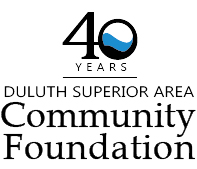The David Hartley Fund provides financial support to students of the Eveleth-Gilbert area who plan a career in engineering, a mining-related field or in conservation or environmental sciences. David Hartley grew up in Duluth and moved to the Eveleth area to pursue a career in mining after his World War II service. He was devoted to the Eveleth area, a strong believer in education and committed to giving back to the community.
Eligibility
- Must reside or attend school within the boundaries of the Eveleth Area Community Foundation Fund (attend one of the following schools: Eveleth-Gilbert High School, Rock Ridge)
- Demonstrate financial need
- Field of study: Engineering; Mining-related; Conservation/Environmental Sciences
- Plan to pursue a two- or four-year degree
- Engaged with extracurricular activities or employment
Scholarship Grant Range
- $1,000 for one year
Application timeline
- This scholarship is part of the Universal Application: December 1 – February 15
- ONE Universal Application: Create a profile in the scholarship portal. Fill out the first page of the universal application to filter through all of the scholarships you qualify for.
Award Details
- This scholarship may be used for expenses of post-secondary education at any accredited college, university or technical/ vocational school
- Award Payments will be mailed directly to the school/ university
- Fall Payments are mailed July 15-30
- Spring Payments are mailed December 15-30
- Transferring Schools: Please contact DSACF if you plan on transferring schools. Transferring schools does not automatically transfer your scholarship. If a transfer occurs after scholarship money has been disbursed it may take up to 90 days to reprocess the scholarship payment.
Tax information
DSACF encourages scholarship recipients to seek tax advice regarding scholarships. According to the IRS: Scholarships, fellowship grants, and other grants are tax-free if you meet the following conditions:
- You’re a candidate for a degree at an educational institution that maintains a regular faculty and curriculum and normally has a regularly enrolled body of students in attendance at the place where it carries on its educational activities; and
- The amounts you receive are used to pay for tuition and fees required for enrollment or attendance at the educational institution, or for fees, books, supplies, and equipment required for courses at the educational institution.
Eveleth Gilbert Minnesota


